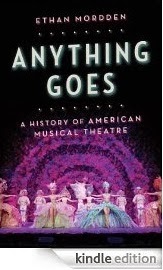This book is two stories in one.
In 1942, a US cargo plane crashed into the Greenland Ice Cap. Four days later, the B-17 sent on the search and rescue mission became lost in a blinding storm and also crashed. However all nine men on board survived, and the US military launched a rescue operation. But after picking up one man, the Grumman Duck amphibious aircraft flew into a severe storm and vanished.
Frozen in Time tells the story of these crashes and the fate of the survivors. It brings to life their battle of enduring 148 days of the brutal Arctic winter until an expedition brought them to safety.
At the same time Mitchell Zuckoff recounts the efforts of the Coast Guard and North South Polar Inc. who worked for years to solve the mystery of the Grumman Duck’s last flight and try to recover the remains of its crew.
Will they find anything in the short window of opportunity that is the Arctic summer?
A fascinating and well told story, some of it 'edge of your seat' stuff.
Really worth reading.
Australia gained nationhood on January 1st 1901. The infant government of the day wanted a navy to protect its new territory as well as achieve a naval strategic balance against the German presence in the Pacific. Germany had a considerable number of colonies in the area and a fleet operating in Chinese waters, mainly out of Tsingtao.
Despite Britain's dismissal of such an idea (another one of Winston Churchill's many follies involving Australia in both world wars), Australia's first naval fleet sailed into Sydney Harbour on 4th October 1913.
One of those was the light cruiser HMAS Sydney.
With the onset of World War 1 soon after, Sydney was used to capture German colonial assets in the region.
Meanwhile the German Pacific fleet made a run for 'home' from China across the Pacific around Cape Horn into the Atlantic (Battle of Coronel / Battle of the Falkland Islands).
They left behind the raider Emdem which proceeded to cause havoc with allied shipping in the Indian Ocean.
While escorting troop ships bound for Europe from Australia, Sydney encountered the Emdem eventually sinking her in the Cocos Keeling Islands.
First Victory 1914 is a well written and detailed history of HMAS Sydney at war and in particular its action against the raider. While disturbingly graphic at times, the author brings the crews of both ships, from the bridge to the boiler room, to life. For me it was a virtually unknown part of Australian history with emphasis of our World War 1 activity always being concentrated on the Western Front in Europe and of course Gallipoli in Turkey.
The remains of the Emden are still beached in the Cocos today. A 100th Anniversary commemoration will be held this year in November in the Islands.
What induced me to read Body Surfing I can't remember. I certainly didn't download it to my Kindle. Someone must have left the book in the house and I was looking for something light. Anita Shreve did not let me down.
It was her typical formulaic style where almost every romantic cliche seems to get a run.
There is the two time widowed summer time tutor looking after the family's 'slow' daughter, the two brothers each vying for the tutor's affection, the disagreeable mother and the tolerant and likable father.
All sorts of twists and turns which resolve themselves in the end.
If you like this author and genre you wont be disappointed.
For anyone interested in the American musical theatre Anything Goes is a must read.
Ethan Mordden chronicles the four eras of the American musical ie. the European prehistory, the American melting pot from which Jerome Kern emerged, the glory days from Oscar Hammerstein to Stephen Sondheim, and finally that which many consider to be its decline.
The author also dispels the notion that the American musical is purely a homegrown invention. While it is true it discovered its full potential in the multi cultural melting pot of the immigrant communities in New York, the British operettas of Gilbert & Sullivan and the European offerings of Offenbach were extremely influential.
The Irish-born, German-raised American composer Victor Herbert is credited with being one of the pioneers of the modern American musical. In addition to his role as "grammarian, innovator and debate club coach", he is said to have "reshaped the very structure of the American song, shortening the verse and lengthening the chorus until his heirs, from Irving Berlin and Kern to Rodgers and Hart and the Gershwins, had a more dramatically protean format to work with".
Being a fan of these two, "The Rodgers and Hammerstein Handbook" section was, for me, of immense interest and insight.
The author obviously has a love of words which will have many regularly 'reaching' for Kindle's online dictionary. But this is part of the charm of this book.
Loved it!























No comments:
Post a Comment